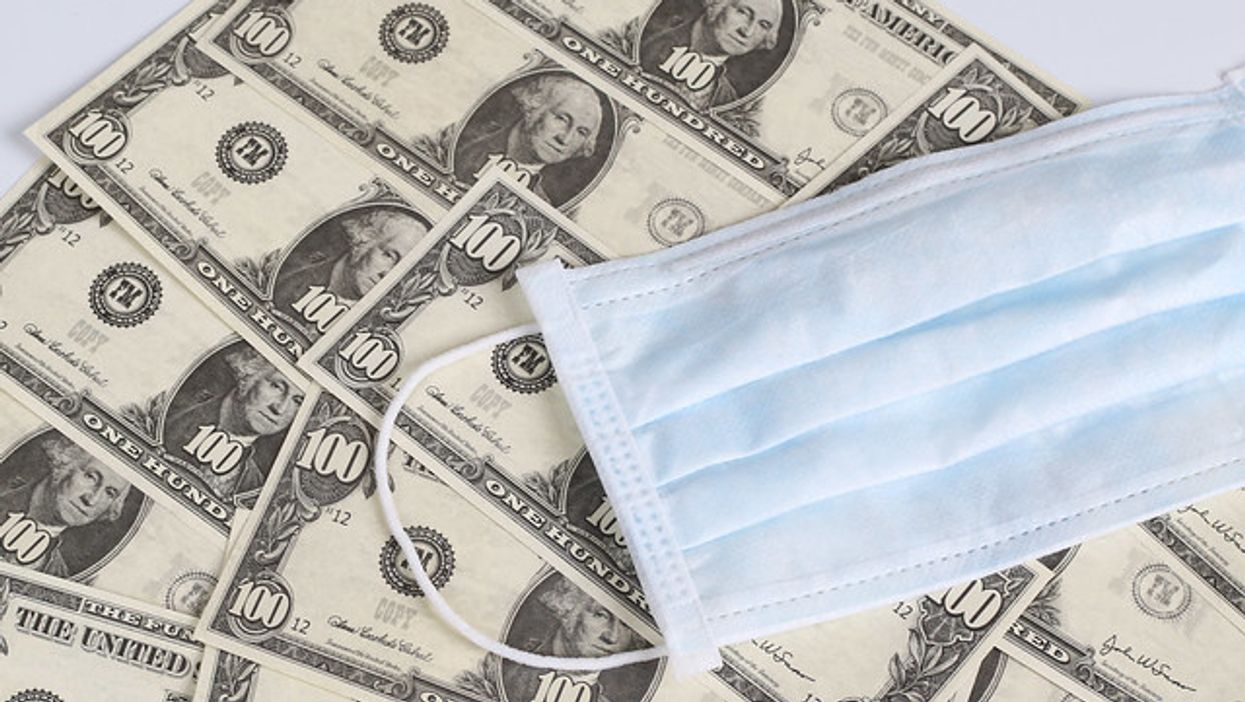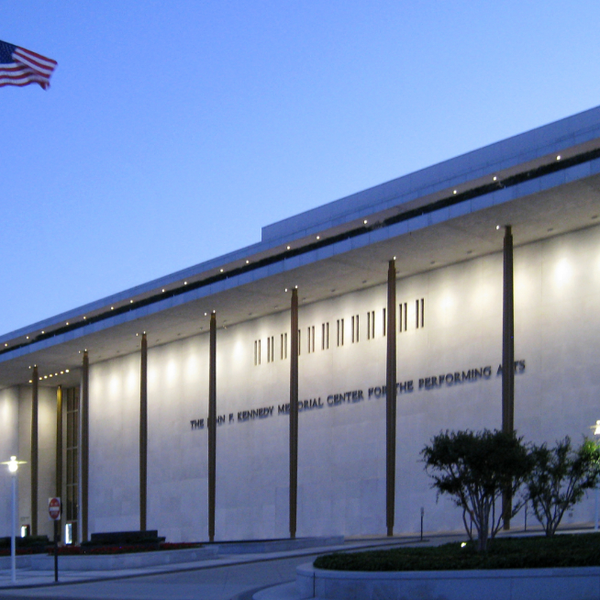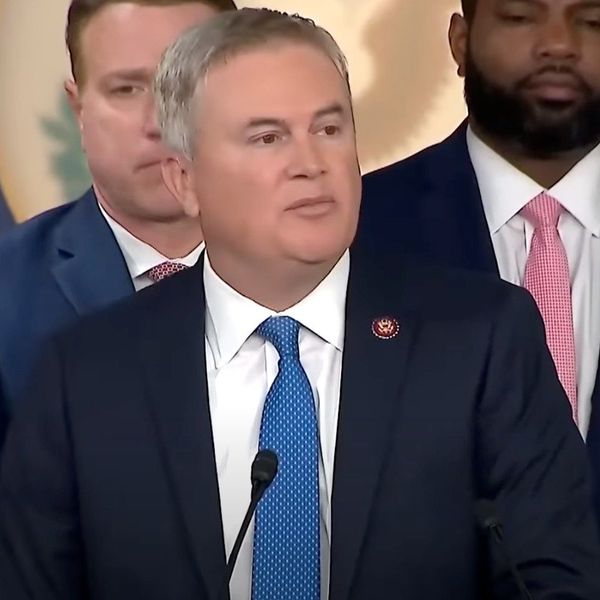Hundreds Of Federal Coronavirus Contractors Were Hired Without Bids — Or Qualifications

Reprinted with permission from ProPublica.
A firm set up by a former telemarketer who once settled federal fraud charges for $2.7 million. A vodka distributor accused in a pending lawsuit of overstating its projected sales. An aspiring weapons dealer operating out of a single-family home.
These three privately held companies are part of the new medical supply chain, offered a total of almost $74 million by the federal government to find and rapidly deliver vital protective equipment and COVID-19 testing supplies across the U.S. While there's no evidence that they obtained their deals through political connections, none of the three had to bid against competing firms. One has already lost its contract for lack of performance; it's unclear if the other two can fulfill their orders on time, or at all.
They are among about 345 first-time federal contractors promised at least $1.8 billion in deals by the Trump administration since March, representing about 13 percent of total government spending on pandemic-related contracts of $13.8 billion, a ProPublica analysis of federal procurement data found. Like the three companies, many of the new contractors have no experience acquiring medical products.
Some of them, including the ex-telemarketer's company and another firm established by a former White House aide, formed only days or weeks before landing multimillion-dollar government contracts. The U.S. government's reliance on them, with what appears to be scant vetting of their credentials, represents a major gamble whose outcome could affect how many Americans are infected by the coronavirus and how quickly the U.S. economy recovers.
“We're putting schedule above quality, to some extent, in this time of great need," said Trevor Brown, a professor of public management at Ohio State University. “There's just so much pressure to get PPE into the field, I'm not surprised there's a relaxing of focus on the quality of the product."
The U.S. health care system and federal agencies were woefully unprepared for the pandemic. As novel coronavirus infections surged in March, hospitals quickly ran short of N95 respirator masks, gowns and other protective gear for front-line workers. The National Strategic Stockpile became depleted within weeks, and every level of government has struggled to restock.
Scrambling to cope with an unprecedented public health crisis, several federal agencies limited their vetting process to checking that companies and their owners were not officially barred from receiving government contracts. The agencies also have bypassed competitive bidding on many purchases, as is allowed under federal law when there is an “unusual and compelling urgency."
This strategy appears to have boosted less established firms; ProPublica's analysis found that 51 percent of the deals with first-time contractors were without competition, compared with 32 percent of pandemic-related contracts overall. For example, at the White House's directive, the Federal Emergency Management Agency has awarded more than $60 million in contracts for test swabs and sample containers to be distributed to states and Native American tribes — all without competitive bidding.
The large-scale reliance on no-bid contracts is worrisome because it increases the risks of price gouging, fraud and faulty products, said Steve Kelman, a former administrator of the Office of Federal Procurement Policy.
“Even if you're allowed to do that, even if you need to act quickly, I would not just go to one company and say, 'Sell it to us,'" said Kelman, now a Harvard University professor of public administration.
Agencies often award the deals without proof that the desired inventory exists. Payment is contingent on performance; if a vendor doesn't deliver, the government walks away. Under the terms of their deals, companies may even be required to pay the difference if they fail to provide supplies and the government has to use a more expensive contractor. With the coronavirus continuing to sicken tens of thousands of people daily and keeping tens of millions out of work, the most important costs may be in time lost, increased cases and economic stagnation, if delays in getting supplies where they're needed lead to more infections and prolonged quarantines.
On April 20, the Department of Veterans Affairs granted a $14.5 million contract for N95 masks to Bayhill Defense, which formed in 2017 and lists a house in Pittsburgh in government filings. (The firm also has warehouse space in a Pittsburgh suburb, according to its website.) The company, which has a federal firearm license, says on its website that it sells “defense industry products," including ammunition, assault rifles, grenade launchers, rocket systems, mortars and anti-aircraft guns, “to be provided to the United States and other friendly nations." It has never received a contract from the Department of Defense, according to federal procurement data.
Bayhill Defense agreed to provide the masks in 10 days, but it never delivered any, and the VA canceled the contract this month without paying the company. Reached by phone, Andrew Taglianetti, the company's president, declined to explain how Bayhill Defense secured the deal or why it failed.
“It's all good," Taglianetti said.
During crisis and war, the federal government has often turned to new contractors selling specialty products or promising to deliver quickly. While these arrangements can be beneficial for agencies and vendors, they also have a troubled history.
After the U.S. invaded Iraq and toppled Saddam Hussein's regime in 2003, fighting lasted years longer than the Pentagon had planned. It needed food and other basic supplies faster than its existing contractors could provide, said Charles Tiefer, a law professor at the University of Baltimore and expert on government purchasing. Military officials hired businesses in the region, particularly Kuwaiti trading companies. The deals were rife with corruption and several ended in criminal prosecutions, Tiefer said.
Similarly, when Hurricane Katrina devastated parts of the Gulf Coast, fraud and waste in procurement plagued the federal response, Tiefer said. “Government contracting is at its worst when it doesn't have time and it has to take on an emergency."
The owner of one first-time contractor examined by ProPublica, Fillakit LLC, has repeatedly faced fraud allegations. Beginning on May 7, FEMA gave three deals totaling $10.5 million to Fillakit, which had incorporated in Florida just seven days before, according to government records. Under the terms of the contracts, Fillakit is supposed to supply FEMA with swabs as well as containers for uncontaminated samples.
Fillakit's incorporation documents list an address in a business park north of Houston, and a St. Petersburg, Florida, lawyer as its agent. They provide no information about the company's ownership.
However, the cellphone number for Fillakit in the federal contract data belongs to Paul Wexler, a businessman repeatedly accused of fraudulent practices over the past two decades. Wexler's background is primarily in law and real estate, not medical supplies.
In 2012, the Federal Trade Commission accused Wexler and his telemarketing firm of illegal robocalling, making unauthorized charges to consumers' bank accounts and falsely claiming to be a nonprofit organization. Wexler's firm allegedly misrepresented itself as a credit counseling service for several years, charging customers for work it did not do, according to court records.
Wexler denied the charges but settled the case a year later. The settlement banned him from offering debt relief services — but not from being a federal contractor — and imposed a $2.7 million judgment.
Wexler confirmed to ProPublica that he owns Fillakit, but he declined to answer other questions about the company or his background. “I'd love to help you, I can't right now," he said. “We're doing so much right now, the volume that we're doing, I've got hundreds of people and I just don't have time to do this."
Wexler said Fillakit is preparing to send the swabs and containers to FEMA. “We're just pumping them out as fast as we can for them, so I've really got to stay on point here," he said.
In a written statement last Friday, FEMA said it has paid Fillakit $381,000 for one delivery of swabs and containers. The company has less than six weeks to provide the remaining $10.1 million worth of test supplies.
Before telemarketing, Wexler was a lawyer and real estate developer building custom homes in Colorado. He declared bankruptcy in 2003. Afterward, court records show, several banks and business associates accused him of financial misconduct.
Geoffrey Phillips loaned Wexler's development company $75,000 in 2002. It used a home as collateral for the loan, but the property actually belonged to Wexler and his wife, according to court records. Wexler's company didn't repay the debt, and Wexler listed the home as his personal residence in his bankruptcy filing, protecting it from seizure. Phillips sued, accusing Wexler of fraud. Phillips won the lawsuit and the bankruptcy judge removed the home from protection.
In an interview, Phillips said he was baffled that FEMA would approve Wexler's deal. “Don't you think the government would check him thoroughly before they gave him a contract?" Phillips said. “Unbelievable."
Under federal procurement law, only the history of Wexler's company is relevant, not his personal track record, said Brown, the Ohio State professor. “The contract officer can't go back and use the information on his prior behavior for another company as evidence in decision-making."
FEMA said that it did not evaluate Wexler's past business practices, only those of his fledgling company. “FEMA reviewed Fillakit's quote and their contractor assurance statement. Nothing was found that would render this company ineligible for award," the agency said.
In addition to newly formed companies, well-established firms in other industries have moved into medical supplies and secured their first government contracts without competition.
The VA gave a $14.7 million contract for masks to Aunt Flow, an Ohio-based seller of tampons and other menstrual products for dispensers in women's bathrooms. When orders for its products slowed during the pandemic, the company converted its own manufacturing facilities in China to prod uce surgical masks, and it began selling them to existing clients as well as federal agencies. Then, it tried to capitalize on its manufacturing relationships in China to bring in a shipment of the heavier-duty N95 masks for veterans hospitals.
But as the supplies were being loaded on a plane, the Chinese government ordered all of the manufacturer's masks diverted for domestic use, said Claire Coder, the company's CEO. She said she immediately called the VA to inform it that the company couldn't fulfill the deal, and the money was never paid.
Medea Inc., a California-based liquor company, also got a federal contract to supply surgical masks. This month, FEMA awarded a $48.8 million deal to Medea, which is a boutique vodka brand best known for decorating its bottles with colorful LED displays. Its marketing videos feature former NBA star Shaquille O'Neal.
A New Jersey finance firm is suing Medea in federal court, alleging it committed fraud during sales negotiations by falsely claiming Costco and Kroger had agreed to stock the brand nationwide. Medea has denied the allegations in court filings. A pending lawsuit is not normally grounds to deny a federal contract.
Medea has high-level political ties in California. Terry McGann, a member of Medea's board and its former chief executive, is a former registered state lobbyist. McGann's wife, Marie Moretti, led a state agency that coordinated volunteer efforts across California before working as Medea's first chief financial officer. She's now its chief marketing officer. McGann said political influence did not help the liquor distributor secure the contract, and he referred all other questions to the company. Medea executives, including Moretti and chief executive Brandon Laidlaw, did not respond to repeated requests for comment.
In a statement provided after this article was published, Laidlaw said that, while the company had no experience in medical supplies before the pandemic, it did have longstanding relationships with Chinese manufacturers. In early March, Medea “immediately pivoted its business profile away from its vodka and technology business to securing and delivering urgently needed masks and other PPE," Laidlaw said. “...Despite extraordinary logistical and regulatory obstacles, Medea has delivered millions of masks to FEMA." Medea has “has met or exceeded all FEMA's contractual and regulatory requirements," has “no political agenda," and is only paid for masks upon delivery to FEMA, Laidlaw said.
Laidlaw added that the company “categorically denies" the federal lawsuit by the New Jersey finance firm. Contrary to the lawsuit's “bogus" allegation, he wrote, “Medea has long-standing relations with Costco and Kroger and has sold millions of dollars of vodka through them."
FEMA did not answer a question about whether Medea has begun delivering masks, which are due by June 1. Asked about the company's qualifications, a FEMA spokesperson wrote that the liquor company was chosen “based on meeting the evaluation factors for award specified in the solicitation."
Update, May 30, 2020: This story has been updated to include a statement by Medea, provided after this article published








